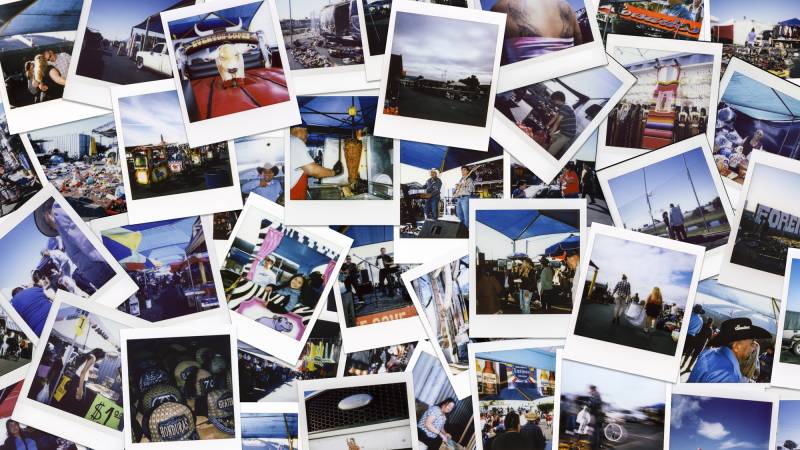This story was produced by El Tímpano, a bilingual nonprofit news outlet that amplifies the voices of Latino and Mayan immigrants in Oakland and the wider Bay Area.
Like swap meets throughout the country, the Coliseum Swap Meet, an open-air market known as La Pulga in East Oakland, is a reflection of the community it serves. Here, all are welcome to taste the flavors of Mexico, enjoy a Michelada under the shade, buy household goods, produce, sweets, croc charms, flowers, hardware, clothes, jewelry, cosmetics, electronics and more at a discounted price.
Children can run around a playground or ride a colorful choo-choo train that snakes around the aisles. Friends can meet for a beer and dance to live bands that perform on weekend evenings. La Pulga certainly provides.
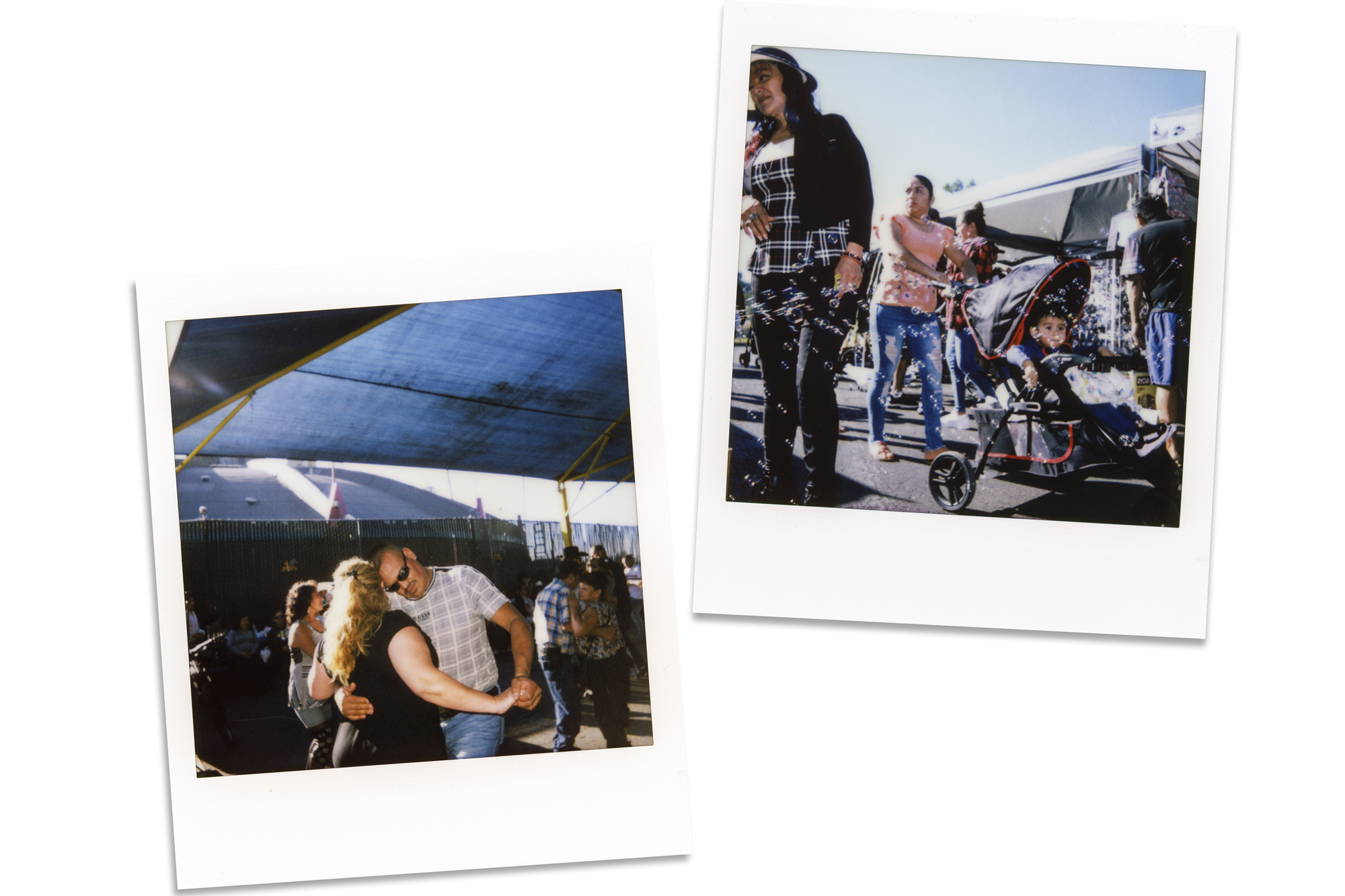
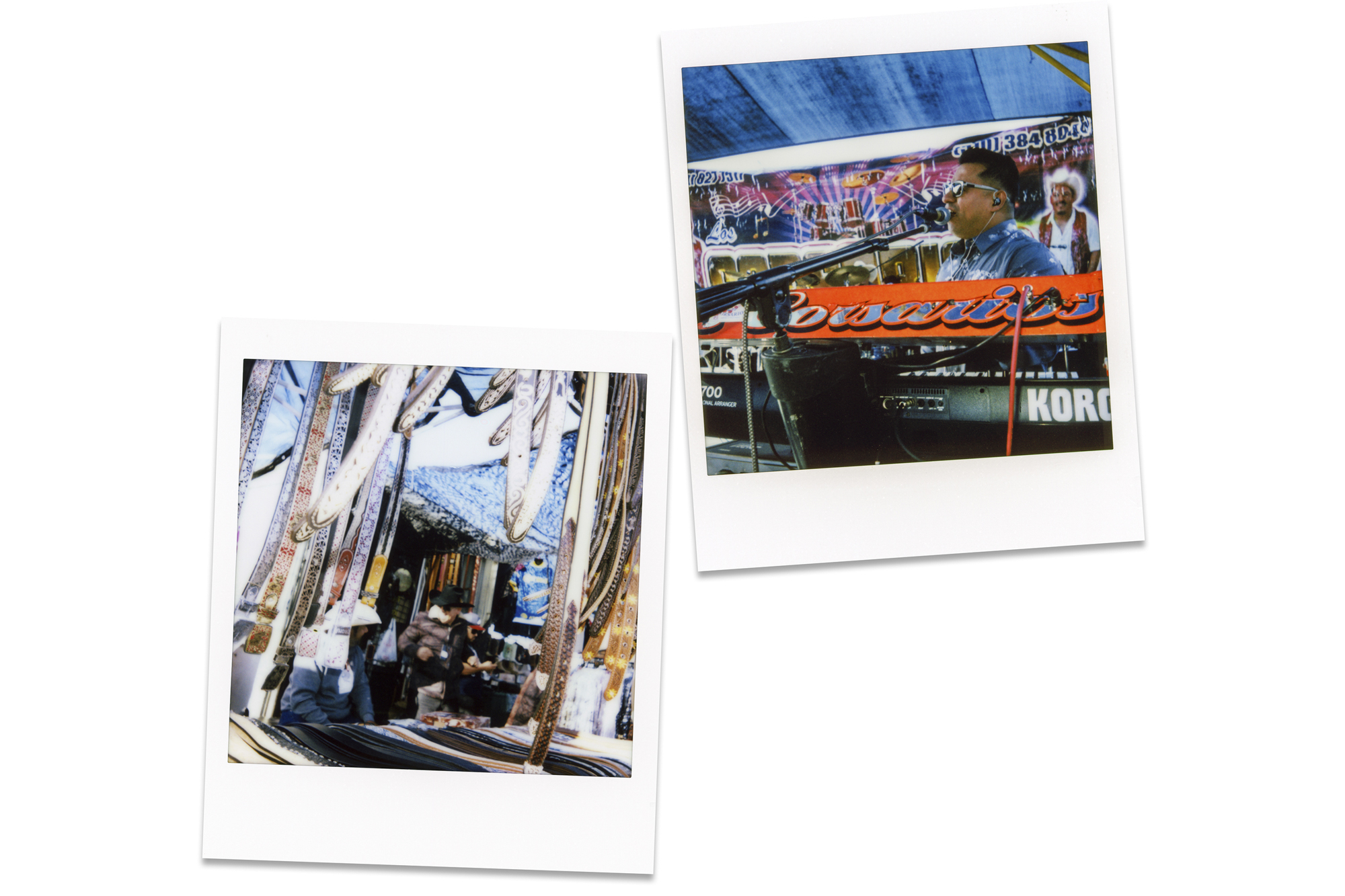
For three Saturdays in October, the El Tímpano team set up a booth at La Pulga to engage with the community. We offered instant film portraits for free, and nearly everyone who participated in the portrait session agreed to a recorded interview. Almost 60 patrons and 14 vendors spoke to El Tímpano about how they spend their time and money at La Pulga.
We heard tales of celebration, camaraderie, and some of heartbreak, but mostly, we heard stories of survival.
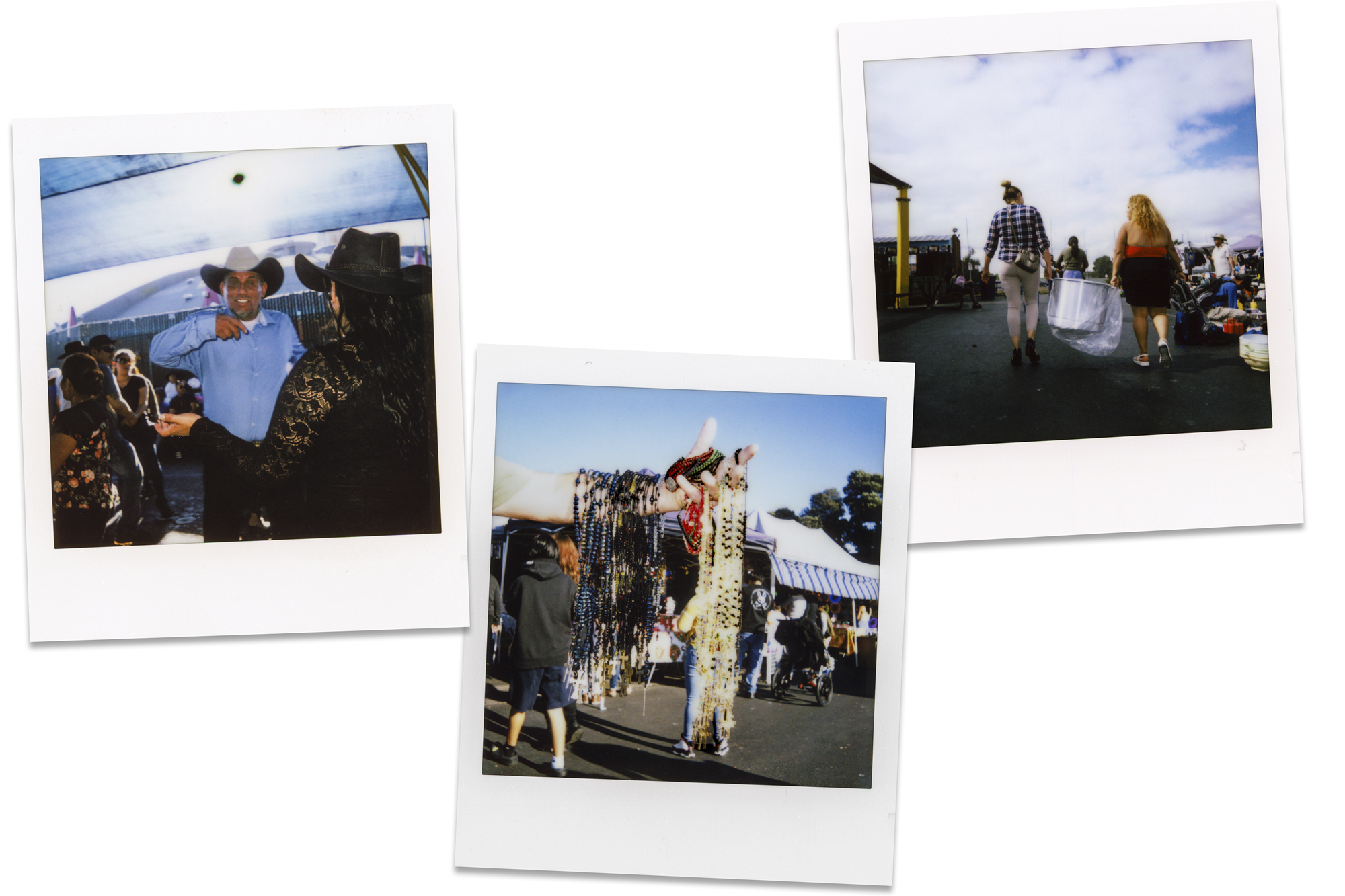
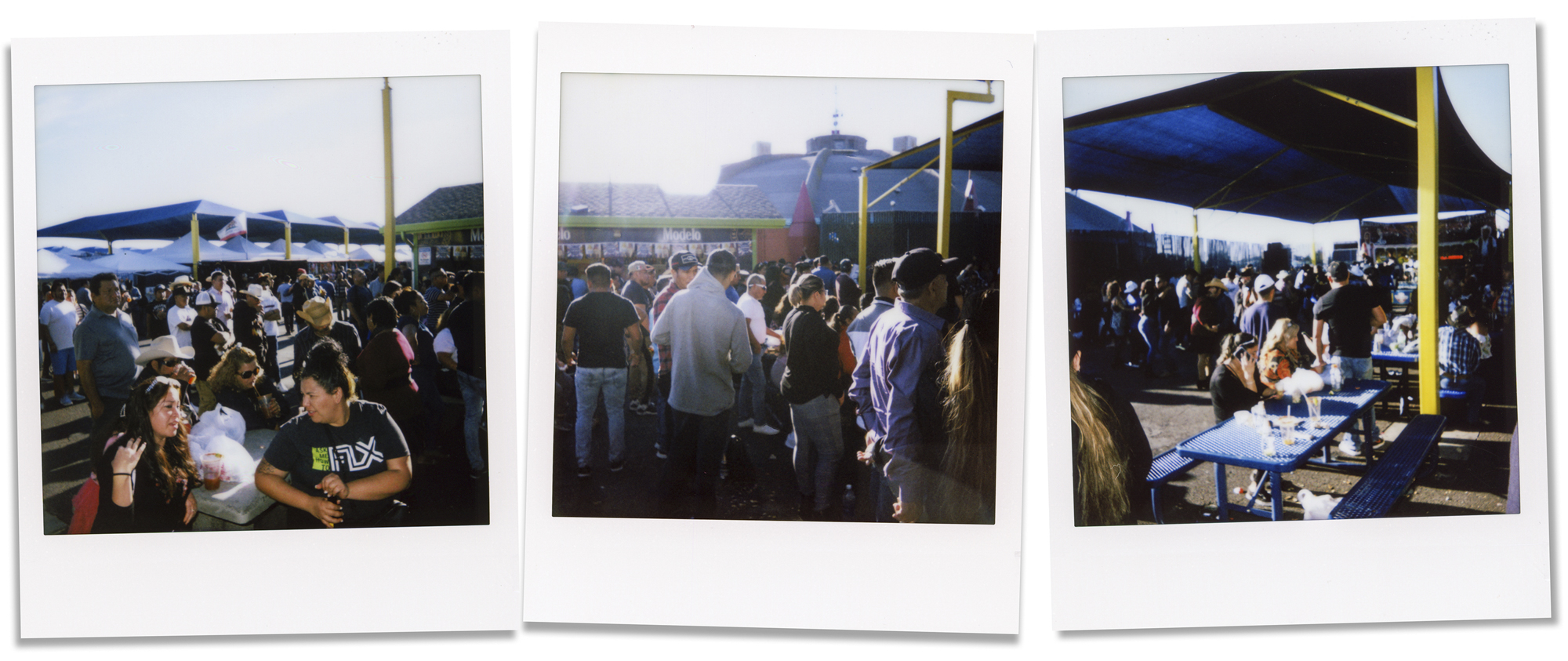
Nearly every day, Samuelin Martinez, 73, can be found walking the grounds of La Pulga. Martinez calls his laps around the market “prayer walks.”
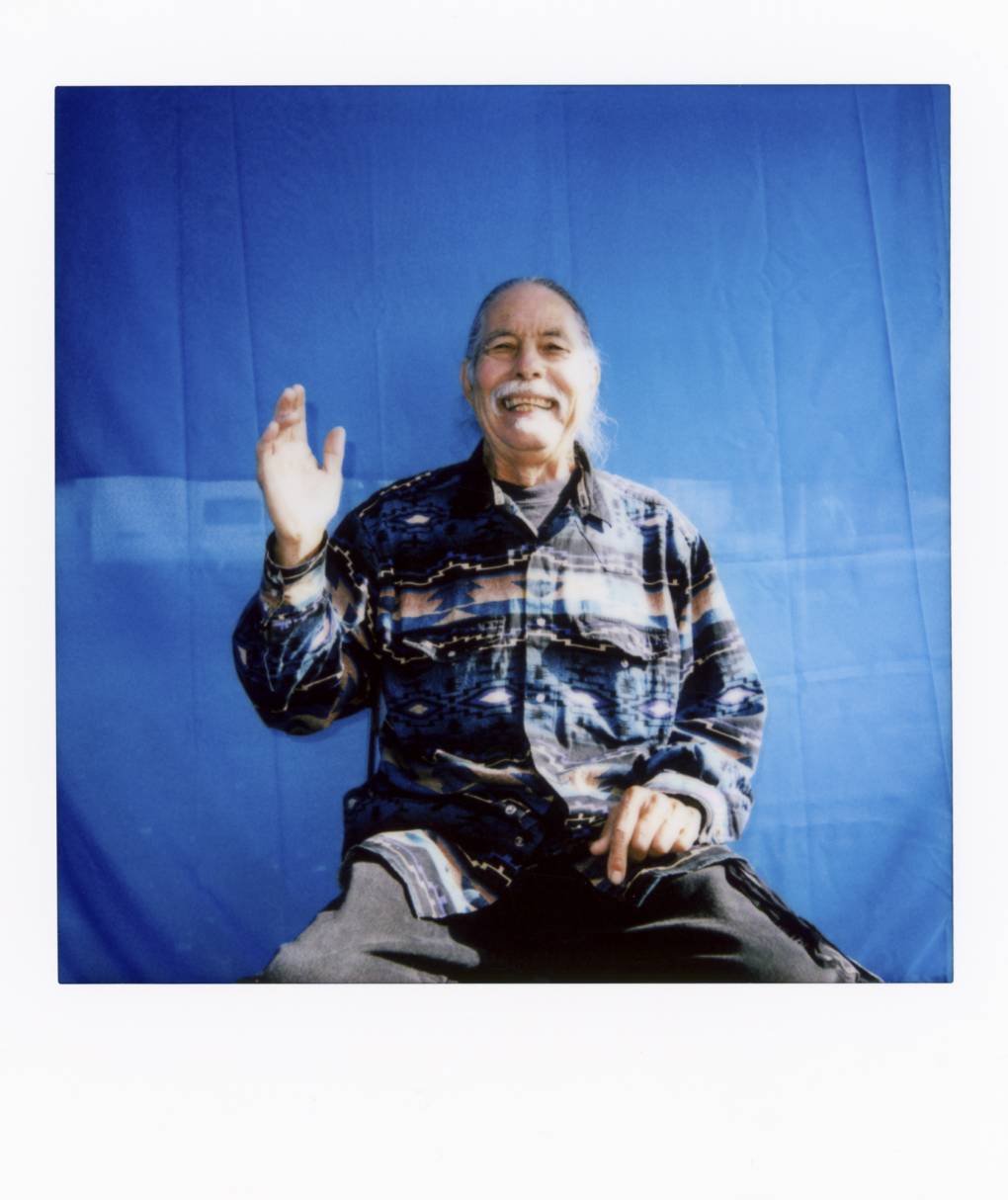
Martinez describes it as if he’s talking about a sacred place. He has long been a community activist and is keenly aware of the area’s history — he used to live in High Street Homes, temporary public housing that once stood near where La Pulga stands now. With the help of his cane, Martinez now spends his days slowly walking among hundreds of booths run mostly by Spanish-speaking vendors. He talks to anyone who crosses his path and greets them with a wide, mustachioed smile.
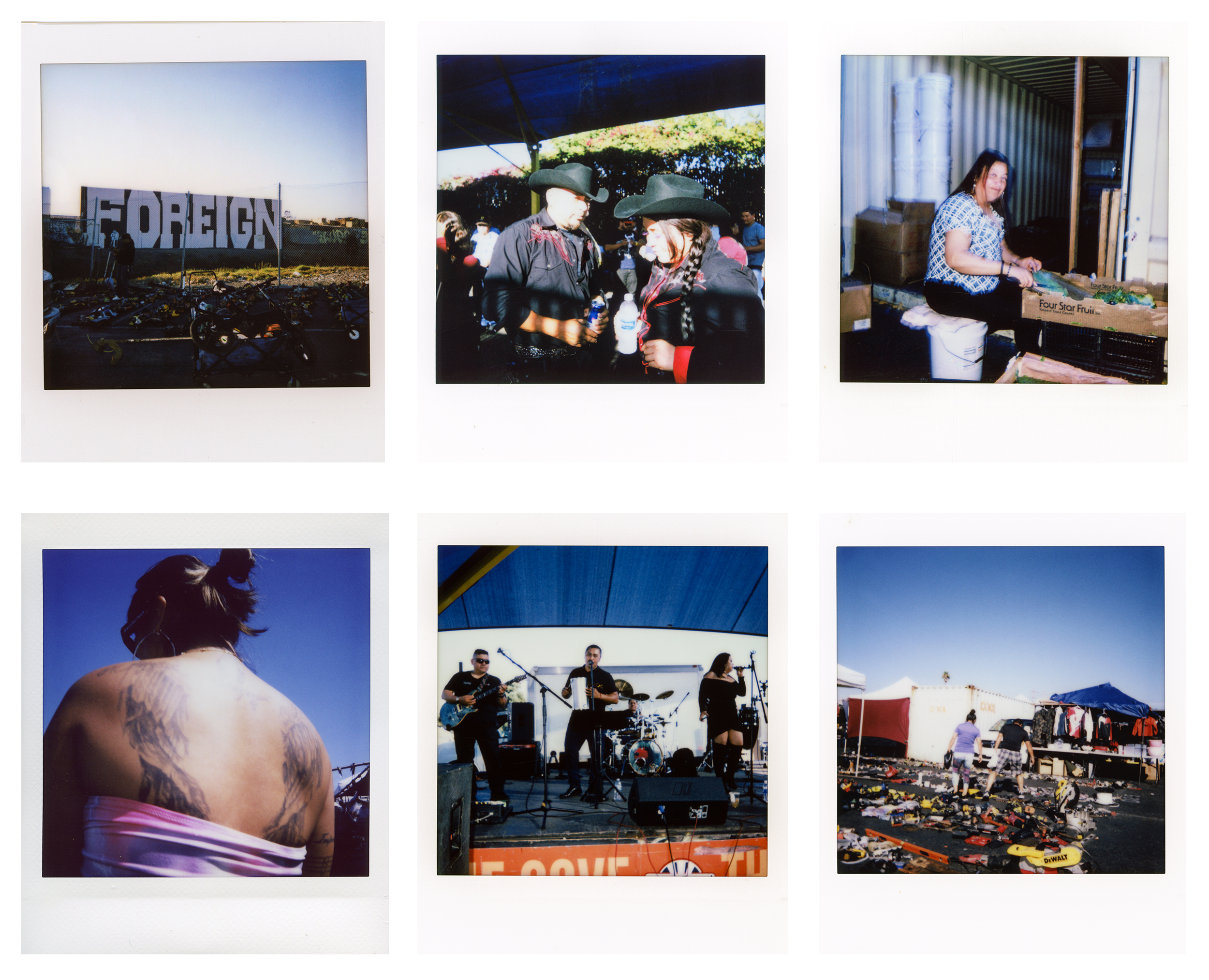
Many vendors have found it hard to stay afloat in the aftermath of the COVID-19 pandemic. Inflation has also impacted sales. Many told El Tímpano that the flea market isn’t as large or packed with people as before the pandemic.
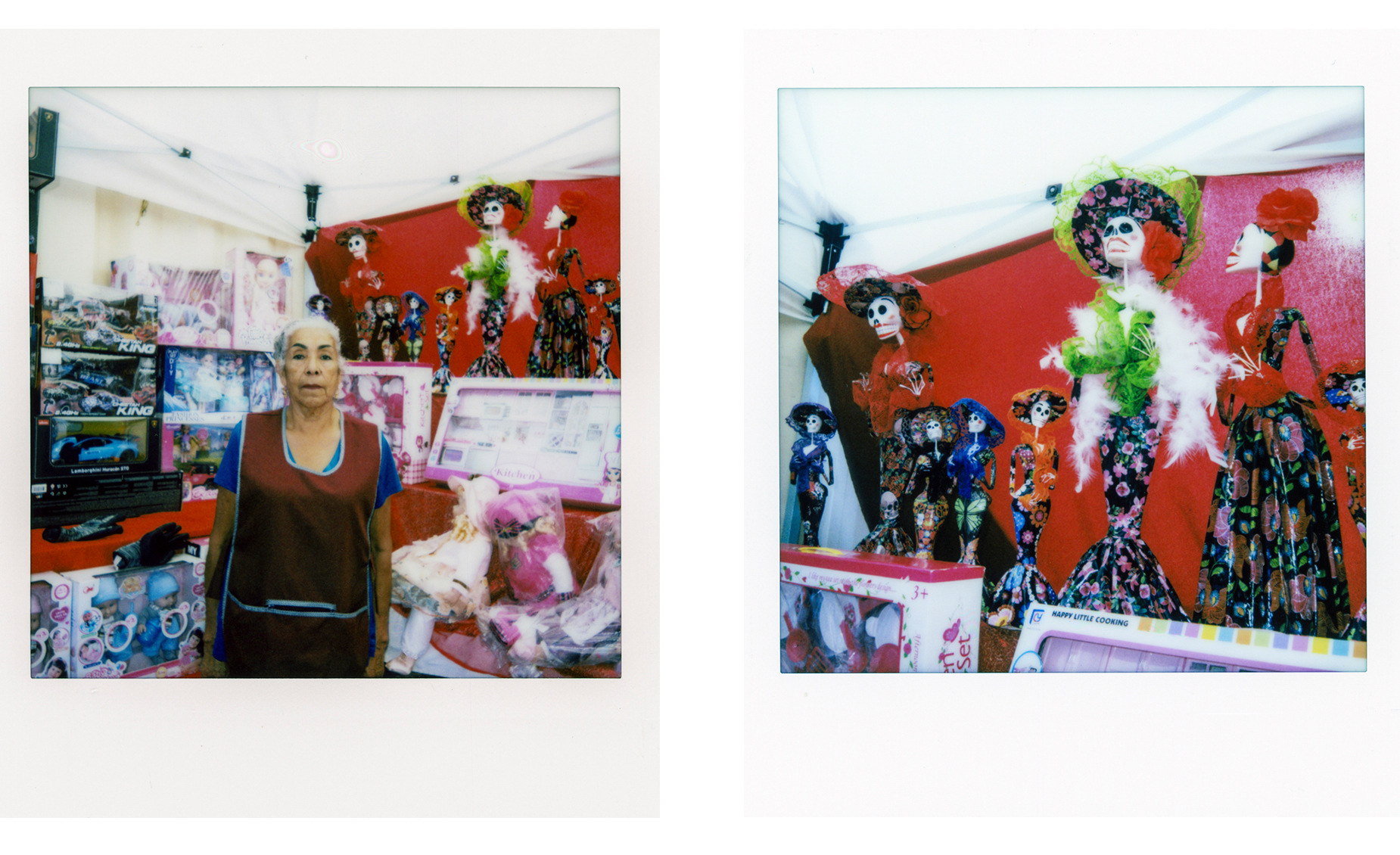
María Villa, 77, an immigrant from Mexico, was a single mother of two. She’s known around La Pulga as “Tía María” and has sold artisan jugs, pots, toys and decorations for 30 years. The sales from her booth helped put her children in college. But, Villa adds, business recently has been slow.
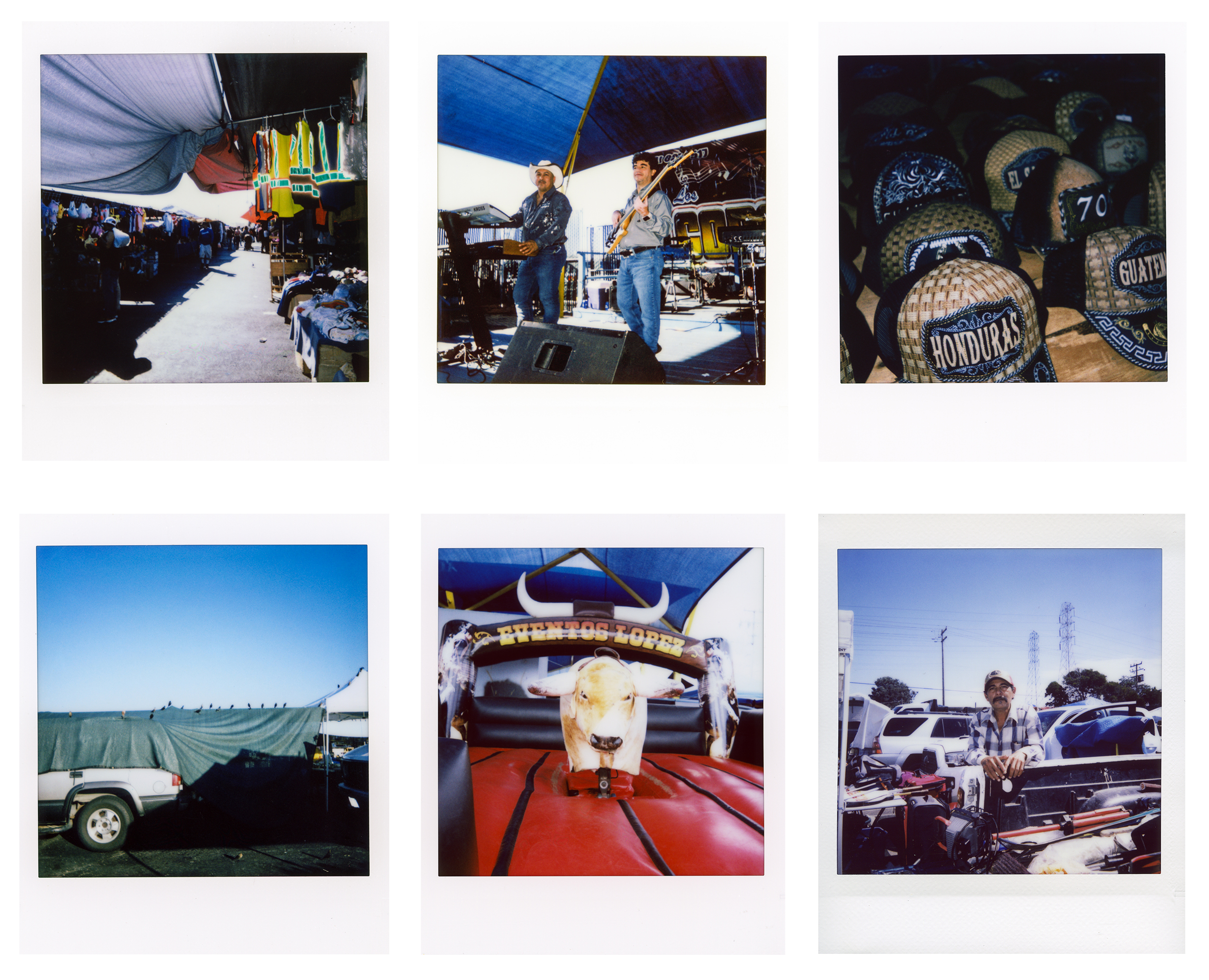
Blanca Luna, 62, is an immigrant from Guatemala who has also sold at La Pulga for 30 years. Between the flashy lights of LED signs for sale and the noises coming from the small electronic toys she sells, her booth is hard to miss.
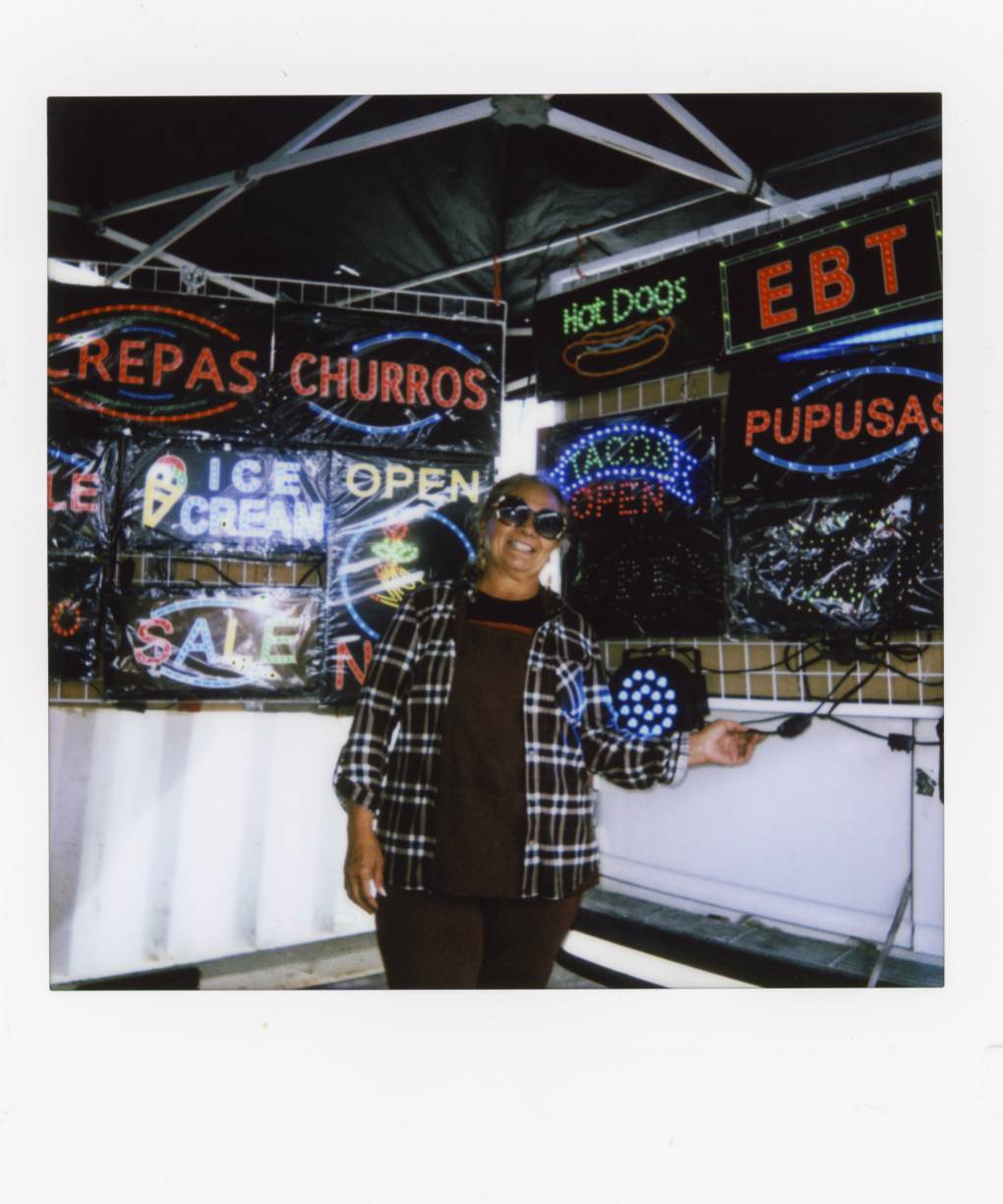
Still, Luna says her profits today are not as good as they were when she first opened up shop. On a good weekend, she says, she might take home between $200–$250.
She has noticed that patrons are spending less, and she cannot compete with online sales. On top of that, her booth location will be auctioned in December, and she’s unsure if she can afford to keep it if she is outbid.
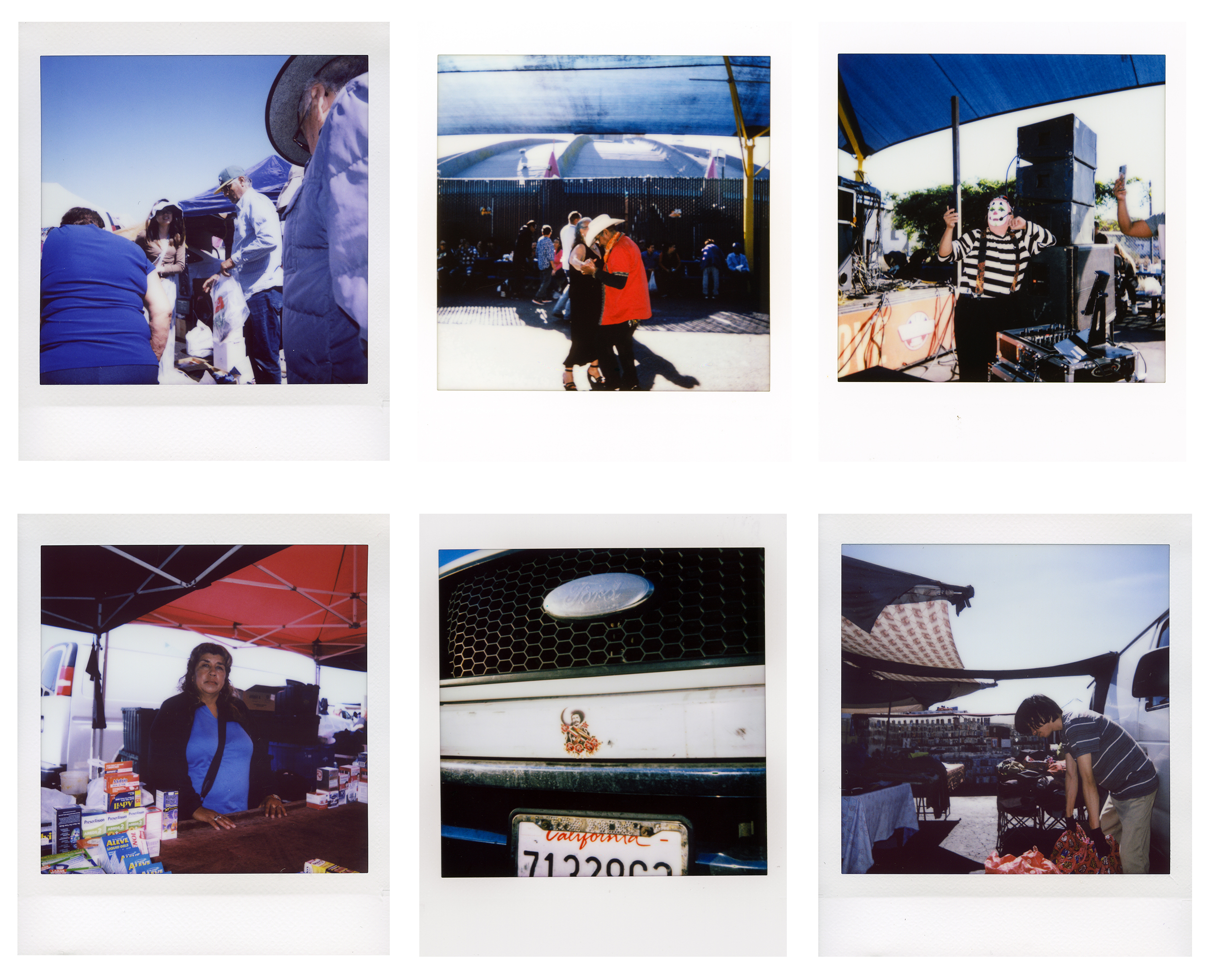
La Pulga has also made recent headlines. Two men were arrested in August for allegedly selling $85,000 worth of stolen merchandise.
On Oct. 21, Omar Oñate Rivas told El Tímpano he was visiting La Pulga for the first time to try to find stolen construction tools that were taken from his friend’s car in San Jose.
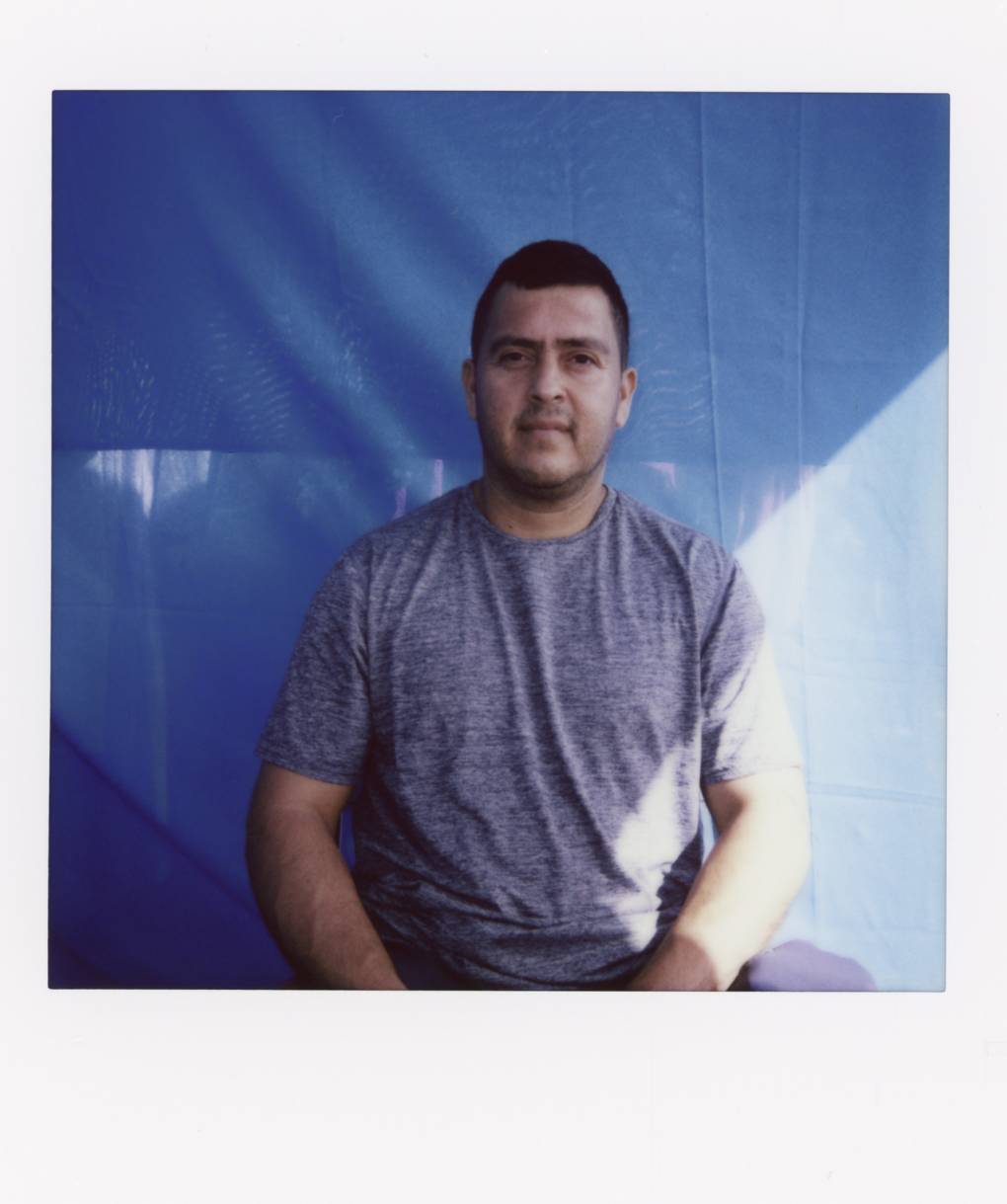
Though Oñate Rivas didn’t find the stolen items that day, he could purchase budget-friendly construction supplies he could use for his job as a day laborer.
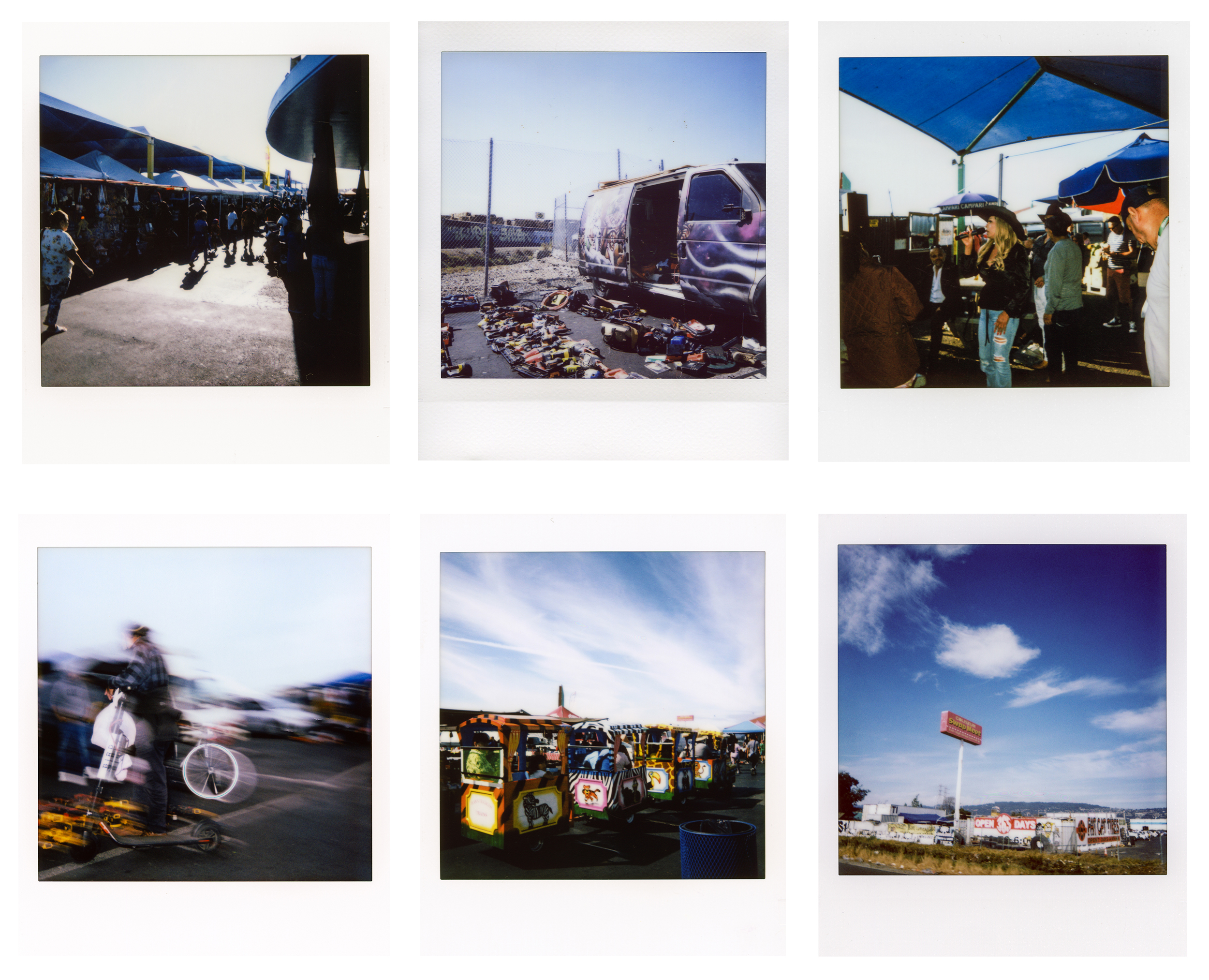
Though El Tímpano’s goal at La Pulga was not to verify whether goods sold at the market were stolen, we observed a cycle of supply and demand that makes clear how challenging it can be to afford to live in the Bay Area. Immigrants might find work as day laborers or in construction, but they often need to buy their tools — equipment that could amount to hundreds of dollars that they may not have.
Cesar, whom El Tímpano is identifying by first name only because he is underage, has sold used construction tools at La Pulga for nearly a year with three partners. Their hundreds of tools for sale are laid out on the floor in chunky rows that resemble farm fields.
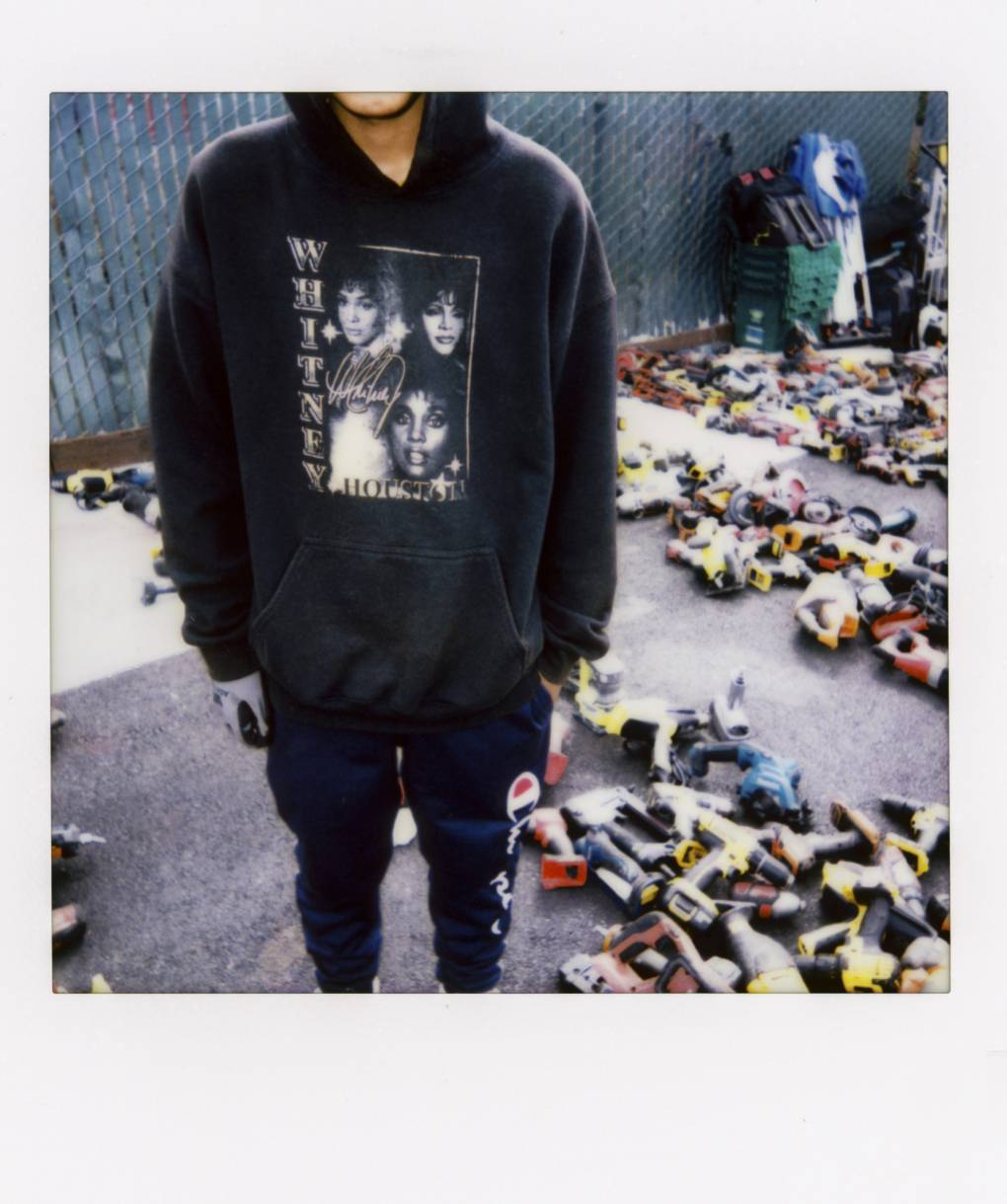
Ultimately, La Pulga’s ecosystem is a microcosm of life in East Oakland, like a terrarium filled with loud music and the smell of new leather.
“This is the only work I’ve been able to invent in order to survive,” says Patricia Beltrán in Spanish. She lost her job during the pandemic and recently separated from her husband. She sells a mish-mash of items, from craft supplies to clothes. At La Pulga, she can bring her children with her so that she doesn’t have to pay for childcare.

“Oakland is a beautiful city … I respect everyone, from the young people who make donuts — you’ve got to be brave to make donuts, you’ve got to be brave for everything,” Beltrán says.
This story includes contributions from El Tímpano’s Hiram Durán, Mayra Sierra, Katherine Nagasawa, Luis Ángel Urbina, Jasmine Aguilera, Mayra Sierra, Vanessa Flores, Ximena Loeza, Maye Primera, Martha Calmo Ramirez and Madeleine Bair.
El Tímpano’s original version of the story — in English and Spanish — can be found here.
